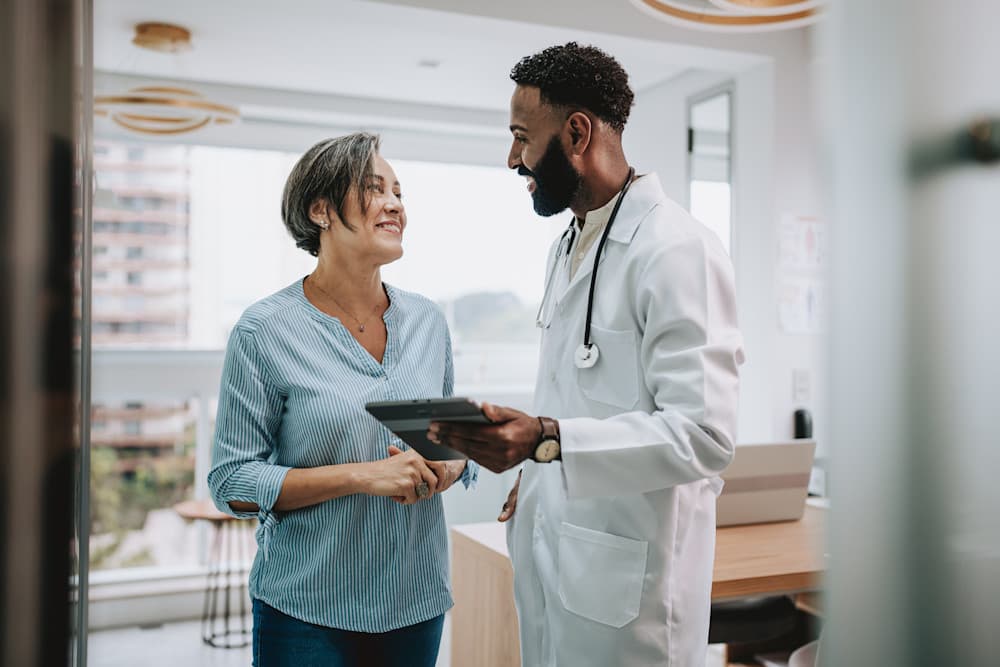Vaccine Equity in Alameda County

5 Minutes

Team Curative

Apr 15, 2021
Alameda County, located in California’s San Francisco Bay Area, is home to a diverse population across 14 incorporated cities — Alameda, Albany, Berkeley, Dublin, Emeryville, Fremont, Hayward, Livermore, Newark, Oakland, Piedmont, Pleasanton, San Leandro, and Union City. When the COVID-19 pandemic began, the county provided food security programs and emergency financial relief to residents. In addition, the county placed pop-up COVID-19 testing sites in communities that were experiencing outbreaks, and when available, prioritized delivering vaccines to the residents who need them most.
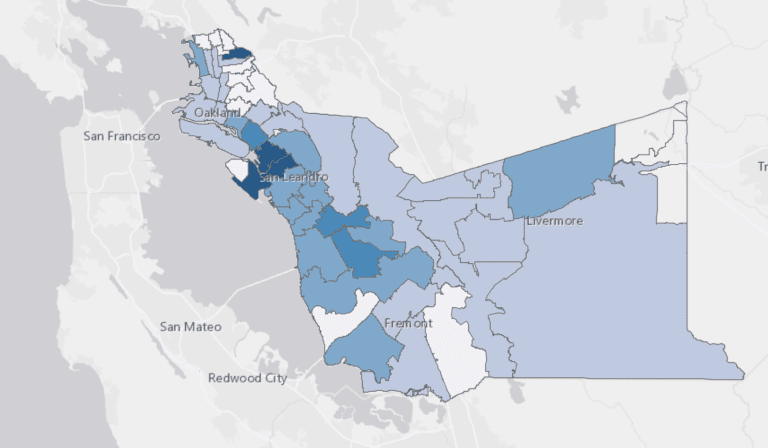
Total COVID Outbreaks by Geography in Alameda County as of April 2021 Source: Alameda County Public Health Department, April 2021
In California, 40% of vaccines are allocated to communities of color. This policy was implemented as evidence concluded Latino and Black communities were falling behind white and Asian communities in access to the vaccine. This sparks concern as the communities hit hardest by COVID-19 are home to essential workers, and often rank in the lowest quartile of the California Healthy Places Index, which measures economic, social, educational, housing, and transportation factors. In Alameda County, the majority of COVID-19 outbreaks have been in San Leandro, Hayward, and East Oakland. Curative has been working closely with Alameda County and the City of Berkeley on a vaccine partnership to help the region meet its health equity goals and ensure that all community members are able to get vaccinated.
Curative’s mass fixed site, a drive-thru in Alameda County, served as a strong launchpad for an additional, more nimble vaccination unit that can travel across the county and meet community members where they are. These health equity vans partner with community-based organizations, faith-based institutions, and places of employment to build vaccine confidence and ensure that outreach is prioritized in an equitable way.
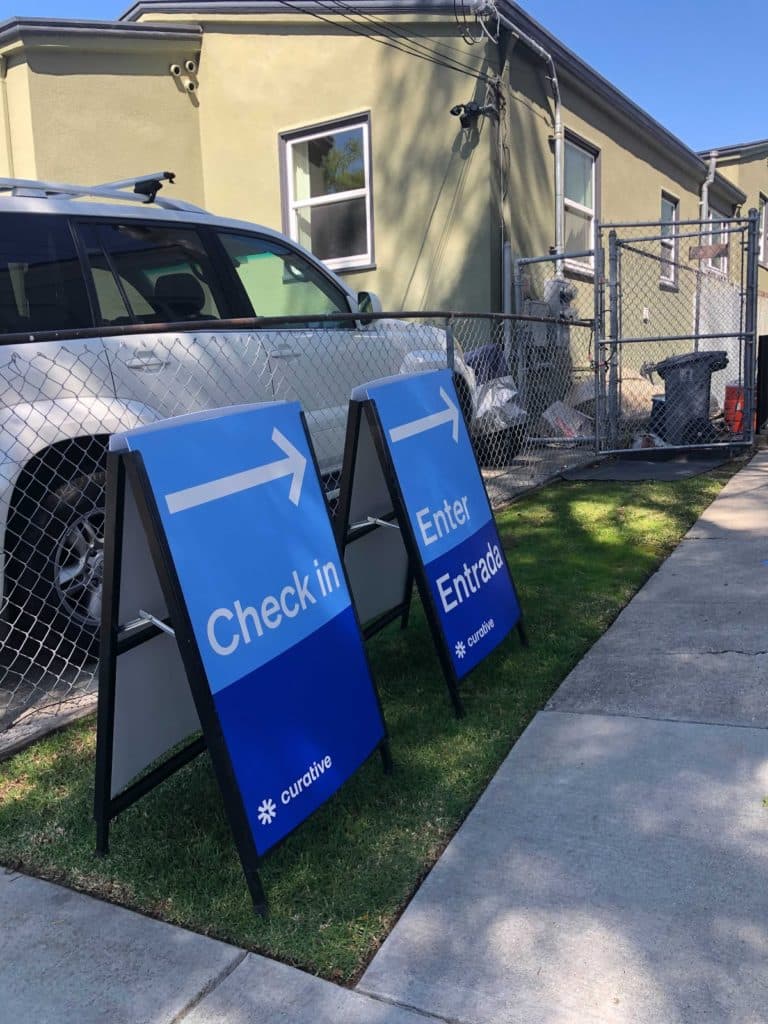
Mobile vans bring vaccines to community organizations that residents trust
Bringing the mobile van into neighborhoods alleviates transportation barriers often found with larger fixed sites. Curative also provides an on-site walk-up registration option with the mobile van so that patients without Internet access or who experience technical limitations can easily make an appointment.
“This van provides a completely new type of option to serve our community that we haven’t quite been able to fill yet. Part of this is that vaccinating the entire community is a very holistic response, so you need different puzzle pieces to make it all happen. The Curative van helps us move our operations to community organizations and directly bring this service for them and the communities they serve.” -Katie Hawn, Emergency Services Coordinator at City of Berkeley
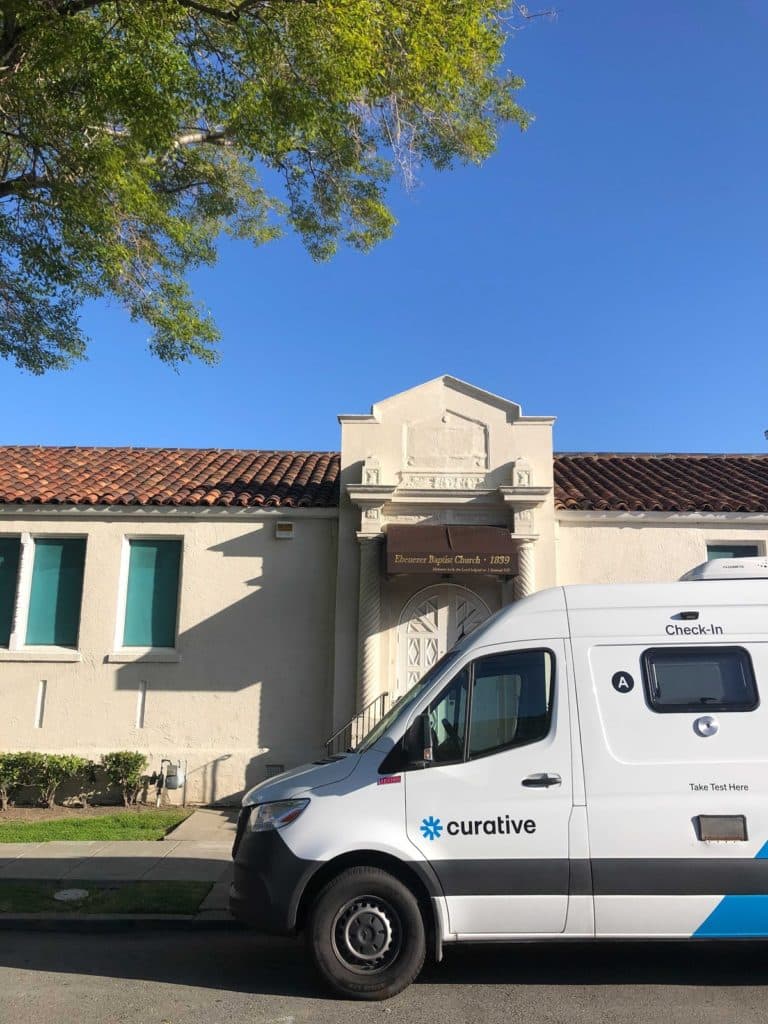
Curative’s van on launch day at Ebenezer Missionary Baptist Church
Curative’s Alameda County vaccine van officially launched on March 30, 2021. The first two days were spent at Ebenezer Missionary Baptist Church in South Berkeley, vaccinating 296 individuals with their first dose of Pfizer. Most patients were Black Berkeley residents, who were neighborhood locals and familiar with the church. Minister Kevin Craddock II, who advocated for the van at the site, said that many of his church’s community were eager to get the vaccine after thoughtful conversation, patience, and modeling. “For people who are distrustful of government services and hospitals due to a history of racism in medical care, getting the vaccine in your own church — on your own street — may be the only way some would even consider taking the shot,” Craddock II said.
The City of Berkeley, which is part of Alameda County, was able to be more flexible with eligibility tiers. With the mobile unit, Berkeley chose to vaccinate everyone in underserved populations above the age of 16, in addition to establishing clinics in homeless shelters, senior homes, and areas with outbreaks.
“We deserve the opportunity in every community to have the option to take or not take the vaccine. In many low-income or heavily-impacted communities, it’s not even accessible. For vaccines to come to South Berkeley and be accessible, it’s huge. 52% of African Americans in Berkeley are in the South Berkeley area so it’s very important for this to be visible to our people and those impacted by the pandemic greatly.” -Kevin Craddock II, Lead Pastor of EBC.
We were overjoyed to see the community’s reaction to local vaccine options. According to Ansbert Ayisadu, who came down with COVID-19 in January, social isolation was stressful and trying. “Getting this vaccine is kind of a big deal for me,” said Ayisadu, who wants to travel again once he’s fully vaccinated, including to his home country of Ghana. Derrick Carr, who also received the vaccine during Curative’s launch day added that “vaccine distribution at a Black church is small-scale and rooted in the community, and dissuades fears around often-cited events of racism and exploitation in the American health system, like the Tuskegee Experiment,” in an interview with Berkeleyside.
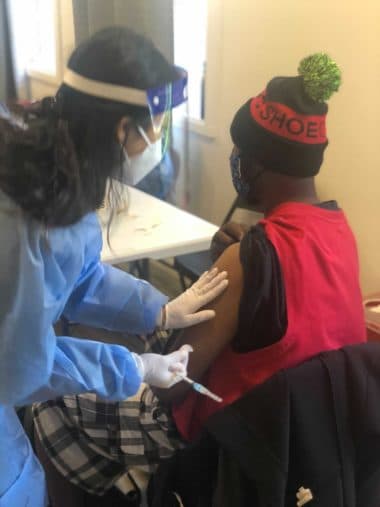
Bay Area resident receiving their first Pfizer dose administered by Curative nurses
The Curative vaccine van has since vaccinated community members in Oakland Hills through an organization whose clients have intellectual and developmental disabilities, adapting to a drive-thru model to best suit the needs of their clients. The team has also visited various places of employment, including Ashby Lumber and Meyer Sound, to easily vaccinate large amounts of essential workers in one day.
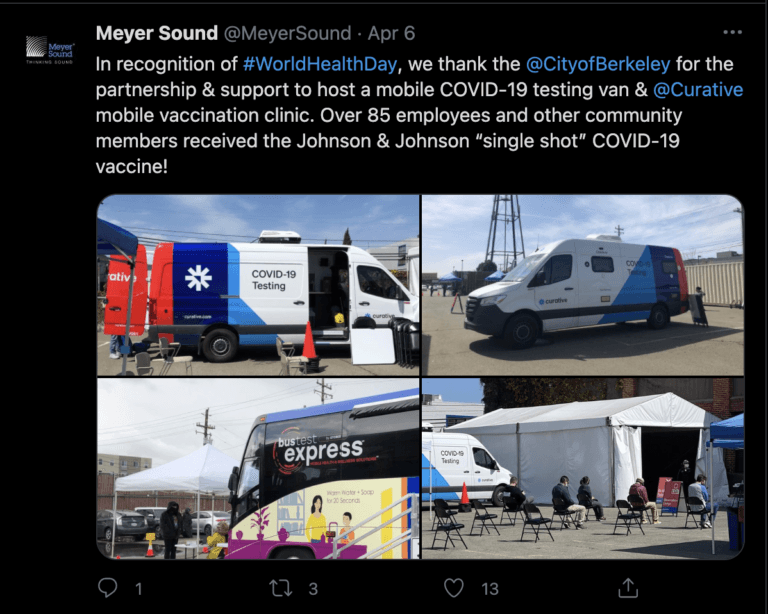
Our partner, Meyer Sound, showcased our mobile vaccination clinic on #WorldHealthDay
Future sites include other faith-based institutions and community-based organizations throughout Alameda County. Our mobile van model is flexible and will adapt as needed to best suit the needs of the community. We look forward to continuing to work with our partners to build a healthier tomorrow, together.
Curative Inc. and its subsidiary, Curative Management Services LLC, engage with medical entities that provide vaccination services.
Sign up for our Newsletter
Table of Contents








